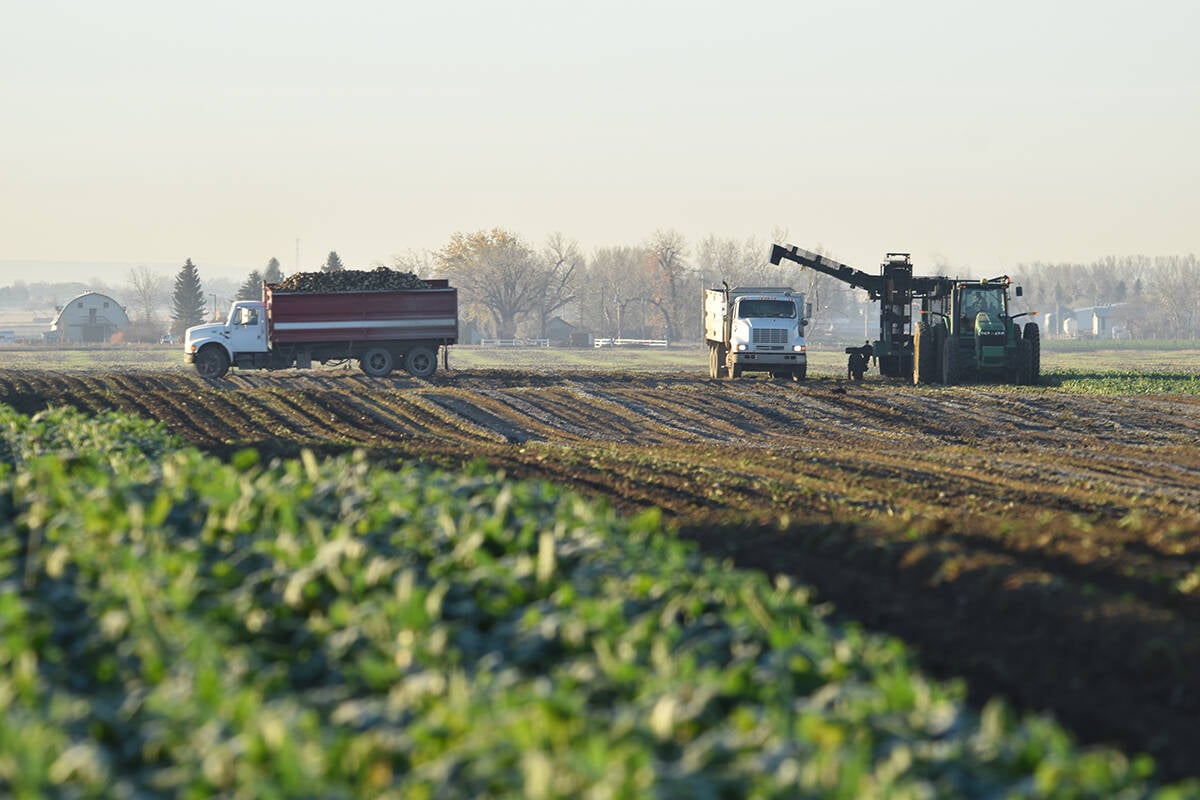WHITEHORSE — Alison and Wayne Grove are typical Yukon farmers.
When they bought their farm five years ago, they had little more than enthusiasm to keep them going.
Now, they have an established farm with irrigated hay land, greenfeed and the start of an elk farm.
“A lot of people are amazed what we’ve accomplished in five years,” said Alison, whose farm outside Whitehorse was toured by Canadian agriculture ministers.
“We are starting to produce enough to make a little profit,” she said of their 365 acre farm, one of the largest in the Yukon.
Read Also

Canada the sole G7 nation without a Domestic Sugar Policy to aid local sugar beet production
Canadian sugar beet industry vastly different to US with free-market system compared to protective government-regulated sugar program
Statistics show agriculture in the northern territory is growing, said Dave Beckman, director of the Yukon Agriculture Branch.
In 1996, production from the 160 farms was valued at $3.5 million, double the 1991 census.
In 1986 the value of land, buildings, livestock and equipment was $5 million. Ten years later that had increased to $45 million.
“That was encouraging to us,” said Beckman, during the federal and provincial agriculture ministers’ conference held here June 27-29.
The Yukon Agriculture Branch, part of the territorial government’s renewable resources department, was formed in 1996 to promote agriculture in Yukon.
“Clearly there’s a number of things we should be self-sufficient in,” said Beckman.
Enough forage, potatoes, eggs, broiler chickens and bedding plants could easily be grown in the Yukon for local needs, he said.
Competing with cheaper produce from south of the 60th parallel is a barrier.
“Some of the stuff can get in here as cheaply as we can produce it.”
The department has started to promote organic agriculture and a Grown In Yukon label.
“We want to promote organic as an idea as much as we can,” he said.
Lorne Metropolit, of Yukon Gardens, the most northerly commercial greenhouse in Canada, is growing more organic produce in his greenhouses each year.
This year, Metropolit is cutting back production and experimenting with organically grown long English cucumbers and tomatoes. Production is down, but profits are up, he said.
“Everyone is going more organic, and the Yukon is no different.
“There are a lot more green-minded individuals here. We’re on the cutting edge.”














